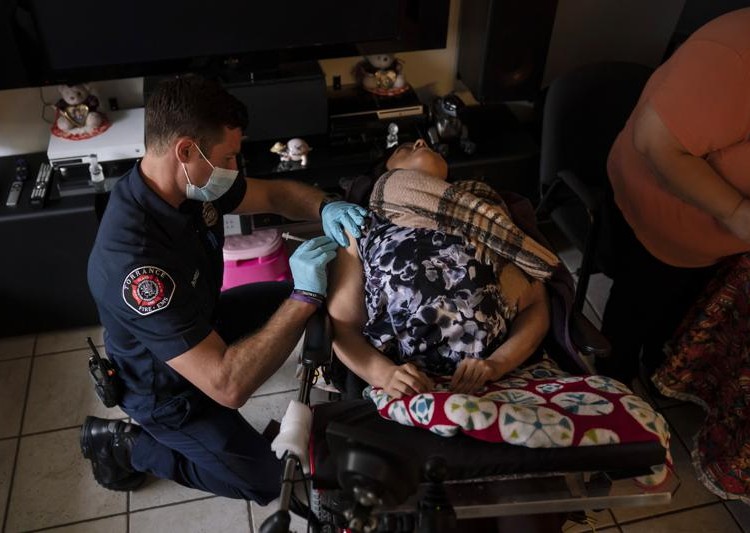SAN FRANCISCO (AP) — For months, Victoria McAllister searched online to make a vaccination appointment. Unlike other people who can hop into a car, though, she has ruptured discs that could slice her spinal cord if she hits a pothole or her wheelchair bumps floor molding.
So McAllister, 64, was over the moon when her local county health department in Hayward, California, called offering to inoculate her against COVID-19 at home. Two paramedics with Hayward Fire came last month, jabbed her arm with the one-dose Johnson & Johnson vaccine and stuck around to make sure she was alright.
“Absolutely blessed,” she said of how she felt after receiving her vaccination. As soon as they left, she called her doctors and passed along the county phone number with this message: “Call this number and get all your homebound patients to call this number.”
As interest in mass coronavirus vaccination sites dwindles nationwide, providers are ramping up efforts to find and reach millions of people in the U.S. who cannot leave their homes or who need help with transportation. The process is slow and requires careful planning, but advocates say getting vaccinated is critical for people who are constantly exposed to visiting aides — and that they should have been a focus sooner.
While the effort is happening in many states, experts say California has one of the most robust programs. Last week, state officials announced residents could go online or call a number to request a ride or an at-home vaccination. So far, there have been more than 5,000 requests for help, said state public health spokeswoman Sami Gallegos.
